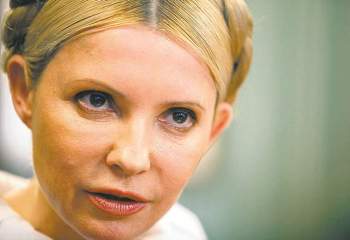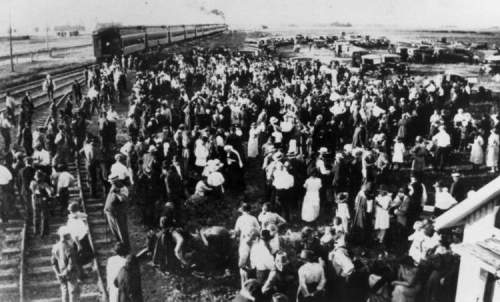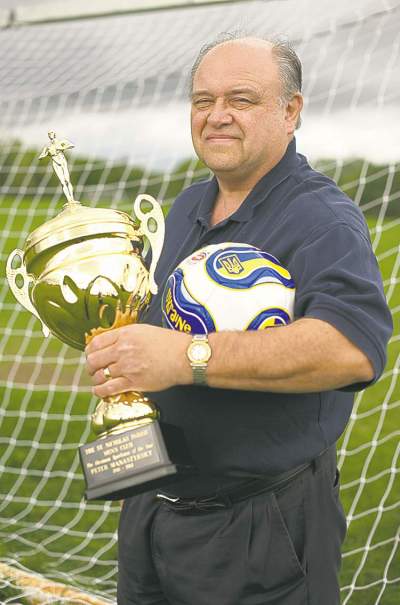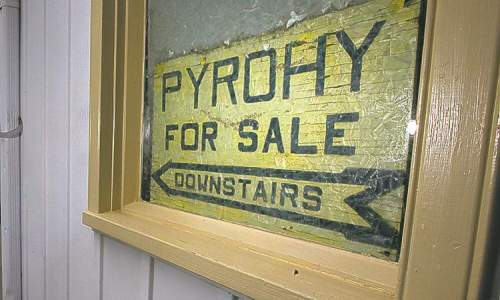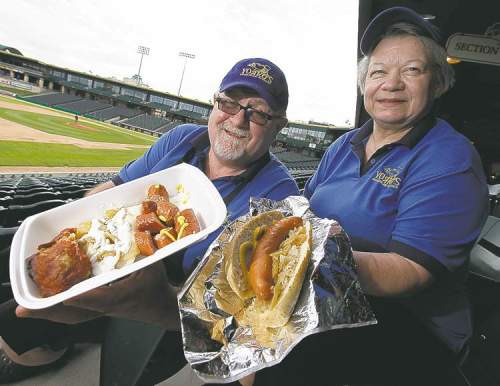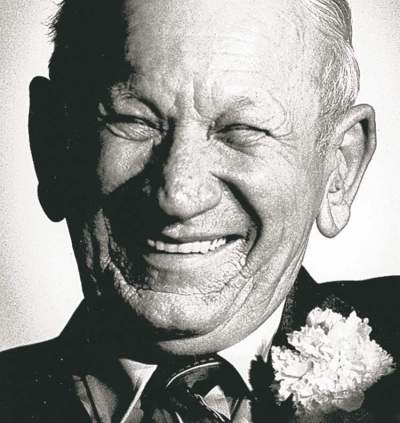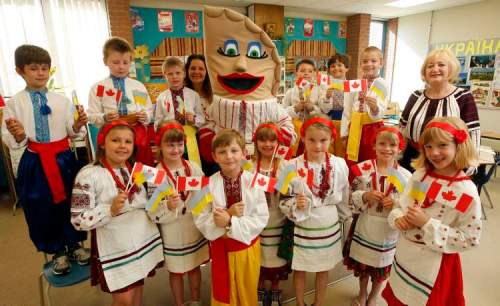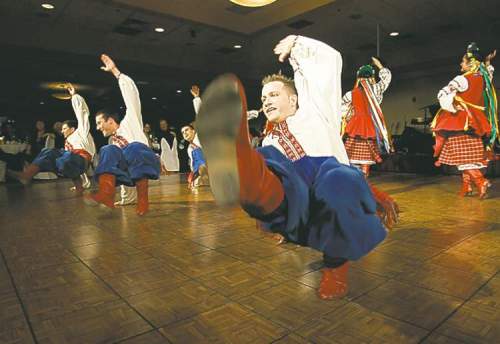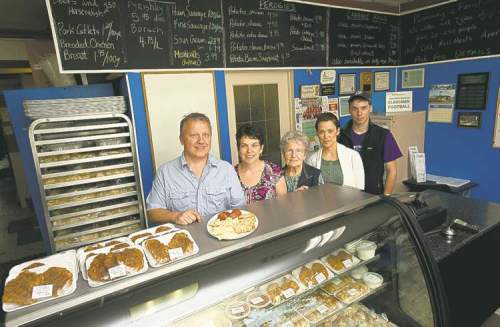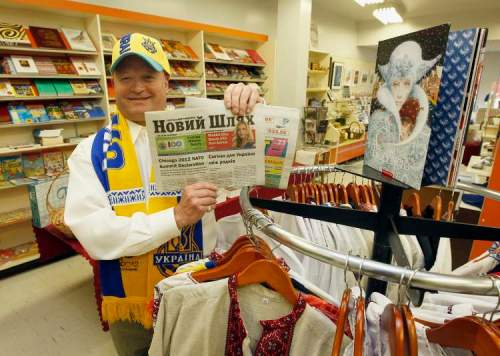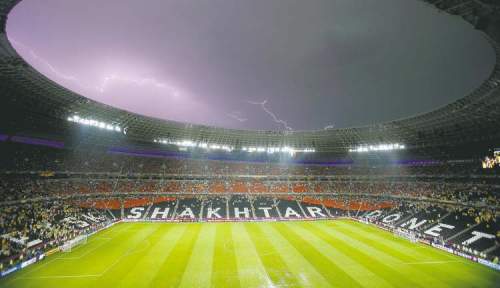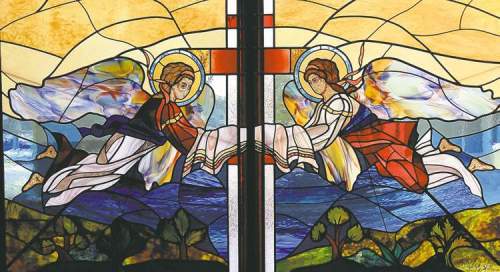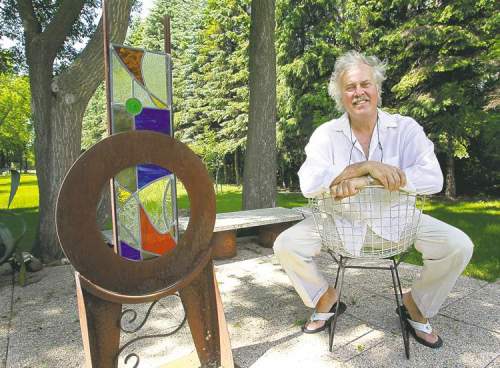Ukraine
Ukraine still driving its people away
7 minute read Saturday, Jun. 23, 2012If you're considering going over to Ukraine any time soon, consider tapping into the experience already gained by fellow Canadians who've spent many years there.
Whether you're going to catch football, observe an election, trace family roots, tour Chornobyl, find a mate, or for any other reason, there are some lessons that have already been learned the hard way and worth sharing. Why reinvent the bicycle?
A major lesson is taught by the masses of people who once lived in Ukrainian lands, but have spent the last 12 decades looking for ways to get out. Waves of immigrants arrived in Canada for various reasons: economic, political, ethnic, religious, etc. Their common trait -- good reasons to leave.
At different times, they fled from the Austro-Hungarian and Russian Empires, Poland, Czechoslovakia, Hungary and invasion by Bolshevik Russia and Nazi Germany. Staying would have meant subservience at best, death at worst and increasingly likely as the fronts of famine, world war and other man-made disasters criss-crossed through their villages, towns and cities and killed millions.
Advertisement
What was that name again?
6 minute read Preview Saturday, Jun. 23, 2012Soccer: short and sweet
4 minute read Preview Saturday, Jun. 23, 2012I say kubasa, you say kielbassa…
5 minute read Preview Saturday, Jun. 23, 2012Homemade home run
4 minute read Preview Saturday, Jun. 23, 2012Faces of our Ukrainian community
30 minute read Preview Saturday, Jun. 23, 2012Keeping Ukrainian in the classroom
3 minute read Preview Saturday, Jun. 23, 2012He’s been dancing with an eagle for 36 years
4 minute read Preview Saturday, Jun. 23, 2012Processors feed appetite for traditional Ukrainian food Perogy paradise
5 minute read Preview Saturday, Jun. 23, 2012A history of fighting institutionalized bullying
4 minute read Saturday, Jun. 23, 2012A current social concern in Winnipeg is bullying. It is not new, nor is it restricted to the schoolyard. Injustice, inequality and discrimination -- political bullying -- are practiced by the powerful to keep the "others" down. Ukrainians in Canada, including those who live in Winnipeg, have experienced its destructive impact and have worked hard to eliminate it. Meanwhile, their kin in Ukraine are not that lucky. They need help. Why should Canadians care? One reason: we know there's a better way.
Maltreatment hit the Ukrainian pioneers to Canada early as unscrupulous ship agents charged for descent accommodations but put them in steerage by taking advantage of their lack of language. Later, they faced the discriminatory school issue when no education seemed better to authorities than one in the Ukrainian language. The First World War brought the internment of "enemy aliens" whose crime was to have come from a homeland under the domain of the Hapsburg Empire. Post-Second World War stirred up anti-DP sentiment against those who fought or fled the evils of the Soviet and Nazi atrocities, which obliterated some 14 million non-combatants alone, for the most part in Ukraine.
The 1932 to 1945 years of terror created the "bloodlands," for the most part Ukraine. The survivors were mocked by Canada's left-wingers for seeing a Communist under every bed and "Nazi" name-calling, a bullying tactic that turned into an ugly witch hunt. Ukrainian Canadians had to defend their good name from false accusation before a federal commission of inquiry and in courts. They won.
Every injustice motivated them to come together and seek change. Early on they organized co-operatives and credit unions to further economic progress and, to this day, to engage in politics to ensure fair play. Some of their contributions were groundbreaking.
Talkin’ ’bout my generation
4 minute read Saturday, Jun. 23, 2012There is a saying in Ukraine that fish look for deeper waters, while humans look for better places. Places where one would feel safe and happy become, to some extent, the goal of life. I belong to those who search for the better places.
I was born in the former USSR and grew up in a town called Gorodok east of Lviv. I have no memories of what it was like to live oppressed in the Soviet Union. By the time I reached real consciousness, Ukraine was already independent. I was seven when independence was proclaimed and six days after that historical event I started Grade 1 at Secondary School No. 3.
We dressed in national Ukrainian costumes during the Sept. 1, 1991, official ceremony that marked a new beginning -- the first cohort of Ukrainian students to attend school in the new epoch.
We were so proud and excited.
Bookstores still thrive — although one is in a museum
3 minute read Preview Saturday, Jun. 23, 2012Soccer brings world ‘home’
4 minute read Preview Saturday, Jun. 23, 2012Ukrainian community, scarred by Holodomor, helped shape Winnipeg’s cultural mosaic
16 minute read Preview Saturday, Jun. 23, 2012Raising awareness of ‘the Ukrainian dimension’
3 minute read Saturday, Jun. 23, 2012IT'S a culture that stretches back almost 120 years and has given Winnipeg NHL hockey players, Leo Mol sculptures, folklore, and an abundance of comfort food.
The University of Manitoba Centre for Ukrainian Canadian Studies documents and teaches not only Ukrainian culture, but also how it's intertwined with Canada and Manitoba.
"The focus is to make people aware of the Ukrainian dimension of Manitoba and of Canada," said former head of the centre Denis Hlynka. "There's of course an interest in what's going on in Ukraine, but the real interest is what's going on here."
The centre started up in 1981, studying and creating awareness about Ukrainian-Canadian culture through classes, lectures, research, and involvement with other Ukrainian organizations.
Angels in the architecture
4 minute read Preview Saturday, Jun. 23, 2012LOAD MORE


